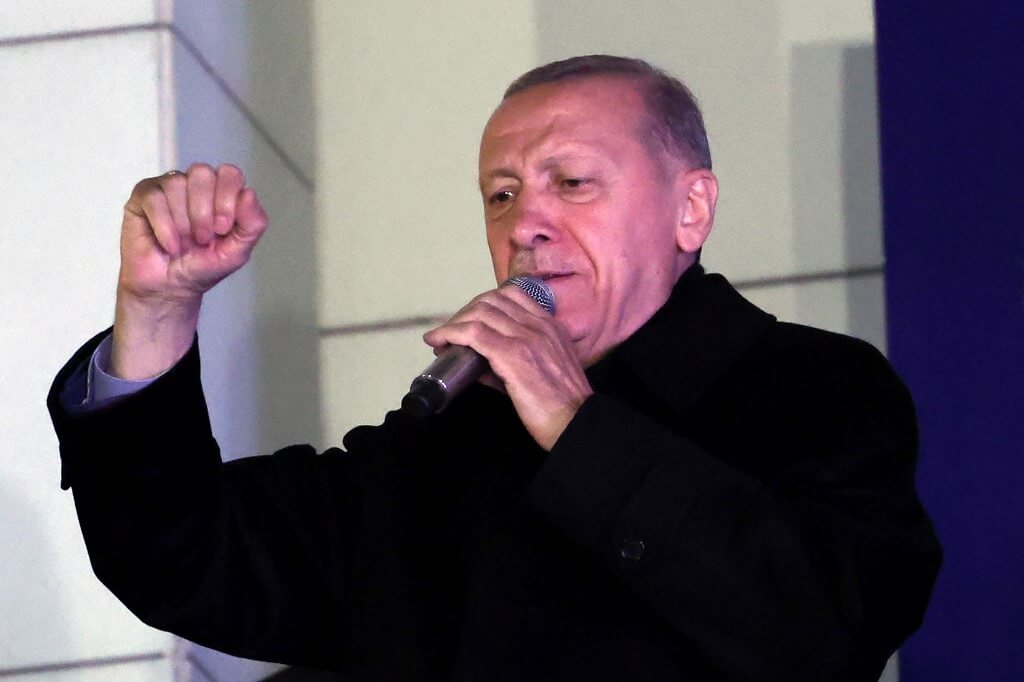A report by the German Bild am Sonntag newspaper about the establishment of a Turkish-Islamist party in Germany close to President Recep Tayyip Erdoğan that will run in the upcoming European elections has led to alarm in the country, with many interpreting it as an attempt by Erdoğan to expand his influence on the Turkish population there, several German media outlets reported.
Bild am Sonntag reported on Sunday that Erdoğan is seeking the establishment of a Turkish-Islamist political party called Demokratische Allianz für Vielfalt und Aufbruch (Democratic Alliance for Diversity and Awakening, or DAVA) with the expectation that the party will run in the European elections scheduled for June 9.
“Dava” is also a Turkish word frequently used by Erdoğan meaning “cause” or something he is fighting for.

Politicians from several parties in Germany have expressed concerns about the possible establishment of a “branch” of Erdoğan’s ruling Justice and Development Party (AKP) in the country.
The Social Democratic Party (SPD) of Germany chairwoman Saskia Esken told Welt-TV that it was important to make it clear to German citizens of Turkish origin that Germany belongs together and that they are one people.
She said “neither should the right-wing extremists who want to deport migrants be allowed to get close to the power nor should the divisive tendencies of Recep Tayyip Erdogan” play a role in Germany.
According to Bild am Sonntag, four men who previously worked for organizations close to Erdoğan or his AKP are named as the top candidates for the European elections.
Germany’s Agriculture Minister Cem Özdemir from the Greens Party, who is of Turkish origin, also reacted to the news about the possible establishment of an Erdoğan-affiliate party in Germany, saying on X, “An Erdogan offshoot running for elections here is the last thing we need.”
Jens Spahn, a member of the German parliament from the Christian Democratic Union of Germany (CDU), warned on X that an Erdoğan-AKP offshoot in Germany “would be another extreme party in the country,” in an implicit reference to the far-right Alternative for Germany (AfD) party.
Christoph de Vries, another CDU lawmaker in the German parliament, told Bild am Sonntag that the German government should never make the establishment of an Erdoğan-affiliate party in the country easy.
“It is urgent that the security authorities closely monitor all activities of this party and its connections to the Turkish government and intervene if the Turkish government exerts direct influence,” he said.
De Vries also warned that with the foundation of a Turkish-Islamist party in Germany, Erdoğan will have another lever in his hand along with the Turkish-Islamic Union for Religious Affairs (DİTİB) to exert political influence in Germany and “will try to use this new instrument of power.”
DİTİB, which runs more than 900 mosques in Germany, has been accused of acting as the long arm of the Turkish government following a 2016 coup attempt against Erdoğan.
Some imams are alleged to have acted on the orders of Turkish diplomatic posts to spy on followers of the Gülen movement, which Ankara blames for the failed coup despite its denial.
Critics say Erdoğan uses DİTİB to promote his agenda among the Turks in Germany and get their support in the elections.
Erdoğan enjoys widespread support among almost 3 million people in the country who are Turkish or have Turkish roots.
Germany has the largest Turkish community abroad with its 1.5 million voters.
Erdoğan received an overwhelming 65.4 percent support among Turkish voters residing in Germany in the presidential election held in May.



